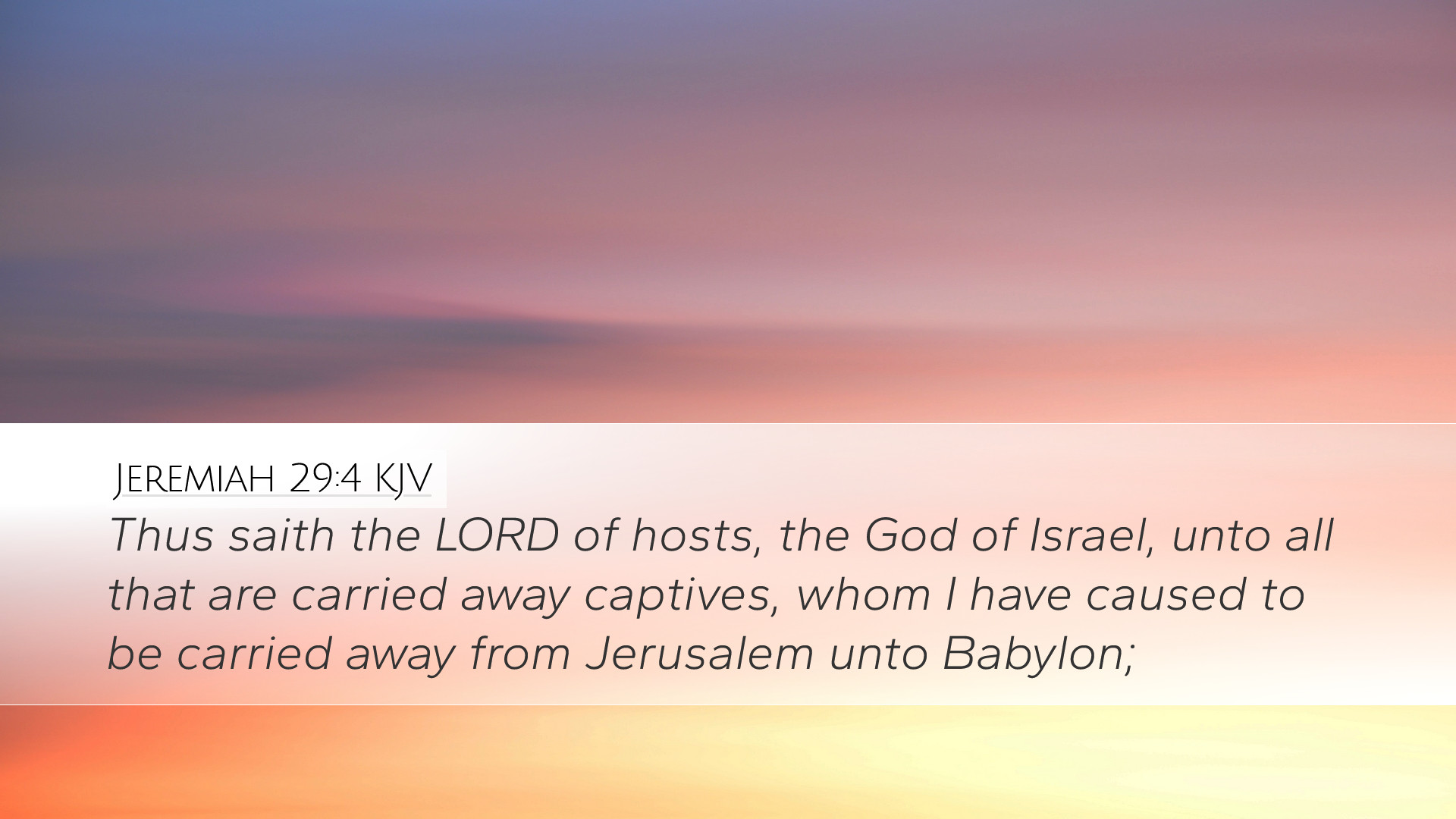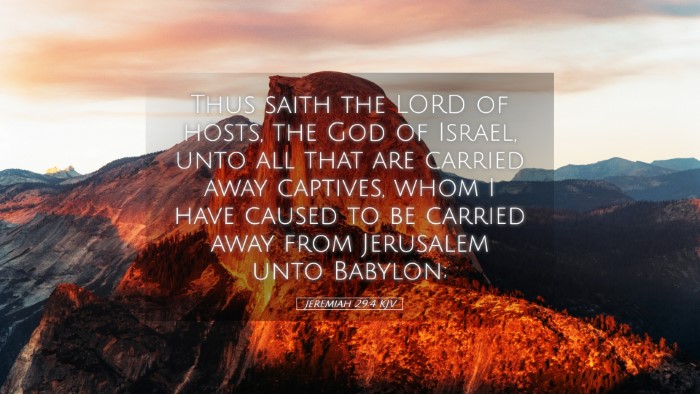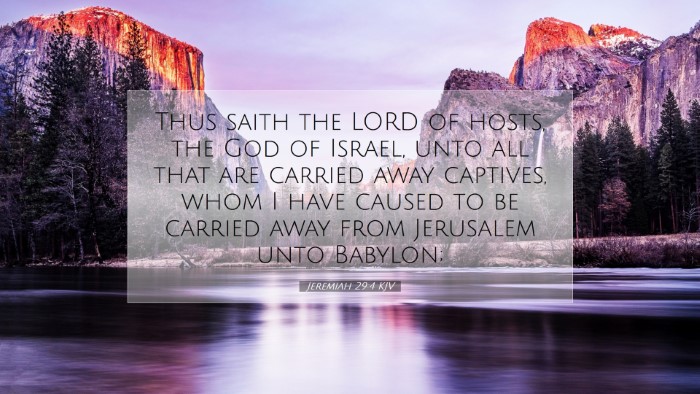Commentary on Jeremiah 29:4
Verse: "Thus saith the Lord of hosts, the God of Israel, unto all that are carried away captives, whom I have caused to be carried away from Jerusalem unto Babylon."
Contextual Background
This verse is part of a letter sent by the prophet Jeremiah to the Jewish exiles in Babylon. The people had been taken captive due to their disobedience and were in a foreign land, experiencing the consequences of their actions. Jeremiah's message was crucial for the exiles, providing them with guidance, hope, and prophetic assurances from God.
The Divine Initiative
Jeremiah 29:4 begins with an emphasis on God's sovereignty: "Thus saith the Lord of hosts." It is essential to note that God is active in this situation, demonstrating His authority over the host of heaven and the earthly kingdoms. This statement serves to remind the exiles that their circumstances are not the result of happenstance but of the divine plan:
- God's Sovereignty: Matthew Henry emphasizes that God's reign extends over all nations, and His hand is involved in the afflictions and exiles of His people.
- Purpose in Affliction: Albert Barnes notes that despite the painful reality of exile, God had a purpose for them. His action does not mean abandonment, but rather correction and guidance.
Understanding Captivity
The phrase "to all that are carried away captives" points to a situation of loss and hardship. Clarke indicates that the captives were suffering the consequences of their idolatry and disobedience, yet God extends His message of hope to them in their distress:
- Discipline through Captivity: This captivity is seen not merely as punishment but as divine discipline intended to bring the people back to fidelity and true worship.
- God's Communication: Despite their separation from Jerusalem—God's chosen city—He seeks to comfort them with His presence and purpose in their trial.
From Jerusalem to Babylon
The journey from Jerusalem to Babylon symbolizes a drastic change in circumstances, a relocation with profound implications for national identity and spirituality. Matthew Henry expounds that this shift was accompanied by an expectation of adjustment, resilience, and transformation in faith:
- Migration and Adaptation: God instructs the exiles to adapt to their new environment while keeping their identity intact, reflecting a dual existence that Christians are often called to maintain.
- Hope amidst Despair: Barnes highlights the importance of remembering God's promises even in unfamiliar (and often unfriendly) territories. The idea that they should build houses and plant gardens illustrates God's call to engage with their new reality.
Theological Implications
From a theological perspective, Jeremiah 29:4 serves as a reminder of God's enduring presence, even during times of judgment. Adam Clarke articulates that this chapter reveals God’s desire for His people to flourish, even in exile, demonstrating His deep concern for their well-being:
- God's Faithfulness: This verse assures believers that regardless of their situation, God remembers His covenant and remains faithful.
- The Role of Prophets: The role of Jeremiah is crucial here; he provides a prophetic voice that directs and reassures God’s people, signifying the importance of divine communication in times of crisis.
Lessons for Today
For modern pastors, students, and theologians, the insights from Jeremiah 29:4 encourage a reflection on how we face our own metaphorical Babylonian exiles:
- Embracing God's Plan: Believers are called to accept God's sovereignty in their lives, trusting that even in difficult circumstances, He is actively working for their good.
- Engagement in Society: Like the exiles, Christians today are often in environments that challenge their faith. They are called to engage constructively, promoting justice and righteousness within their contexts.
- Hope and Restoration: The message of hope that underlies Jeremiah's letter remains pertinent. Just as God had a future for the Israelites, He has a purpose for His people today.
Conclusion
Jeremiah 29:4 encapsulates essential truths about God's nature, the purpose of suffering, and the promise of hope. It invites those who study it to consider not only the historical context of the Israelites but also its enduring relevance today. The challenges faced by the exiles serve as an allegory for modern believers: recognizing that God's providential hand guides their lives, even amid trials, is a profound assurance of faith.


